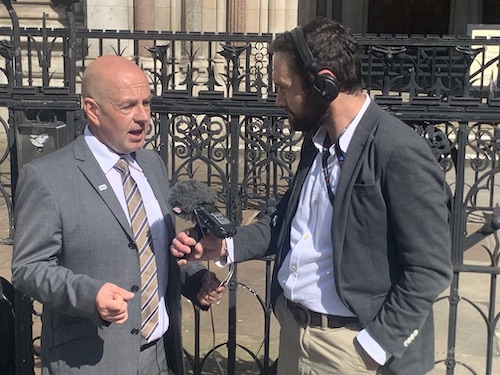Police Service of Northern Ireland regularly spied on numerous journalists
Investigatory Powers Tribunal hears police accessed data of those writing critical stories about the force
The Police Service of Northern Ireland often spied on journalists who had written critical stories about the force, it emerged at a hearing of the Investigatory Powers Tribunal in London today.
At the hearing of investigative journalists Barry McCaffrey and Trevor Birney’s case before the tribunal against a variety of police forces and intelligence services, counsel for McCaffrey, Ben Jaffey, said documents showed that the PSNI had gathered data from the phones of multiple reporters.
This was done every six months, Jaffey said, explaining it was unclear when the practice began or whether it was continuing. The aim of this information gathering by the PSNI was to identify sources for journalists' stories that were critical of the police force.
It also emerged that the PSNI accessed Birney's wife's data - with the aim of uncovering his sources.
The hearing also heard of further instances of the PSNI spying on McCaffrey and Birney via their electronic data and that consideration was given to accessing the data of Birney’s solicitor Niall Murphy.

All of this was done with a view to uncovering McCaffrey and Birney's confidential sources.
Ian McGuinness, Irish Organiser, who attended court on behalf of the NUJ said: “This is shocking and despicable behaviour by the PSNI.
"It is the type of behaviour we would expect in an authoritarian state and not a modern democracy. Journalists exist to hold power to account and that includes writing stories about the PSNI which that force may not like.
"Writing a story about the PSNI and protecting your confidential sources whilst doing so is not a crime. The NUJ is calling, yet again, for the PSNI to come clean.
"In particular, the force needs to state when it started spying on multiple journalists' phone data, who the journalists were, how many times each journalist was spied upon and must give a commitment that it will desist from doing this ever again, simply to uncover legitimate sources for stories.”
*Main photo credit: Amnesty International UK
